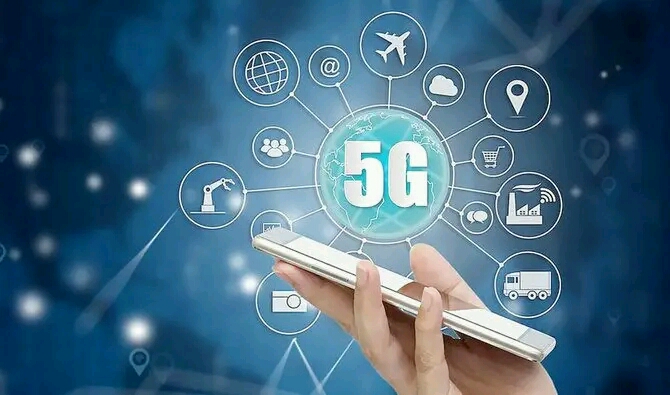The Future of 5G Technology And Its Impact: Revolutionizing Connectivity
The future of 5g technology is promising and its impact will be significant. This advanced wireless technology will revolutionize industries, improve connectivity, enable faster communication, and facilitate the growth of smart cities and the internet of things (iot).
5g technology is set to revolutionize various sectors, ranging from healthcare and transportation to manufacturing and entertainment. With its incredibly fast speeds and low latency, it will enable real-time communication, support the development of autonomous vehicles, enhance remote surgical procedures, and provide seamless streaming experiences.
Additionally, 5g will empower the iot by connecting billions of devices, allowing for efficient data transfer and enhancing automation processes. This technology will be a catalyst for innovation and economic growth, driving digital transformation worldwide. Overall, the future of 5g technology holds immense potential and will have a transformative impact on multiple industries, enabling a more connected and technologically advanced world.

Credit: totaltele.com
The Current State Of 5G Technology
5g technology has become increasingly prevalent in today’s digital landscape. The existing infrastructure and deployment of 5g have made significant progress. However, implementing this technology has not been without challenges. From technical hurdles to regulatory restrictions, there are various obstacles to overcome.
Despite these difficulties, the advantages of 5g connectivity are undeniable. It offers faster speeds, reduced latency, and the ability to connect a vast number of devices simultaneously. However, it’s important to acknowledge the limitations of current 5g connectivity as well.
Coverage may still be limited, especially in rural areas, and the costs associated with upgrading infrastructure can be substantial. As we move forward, it’s essential to address these challenges in order to fully realize the potential of 5g technology and its impact on various industries.
The Future Potential Of 5G
5g technology holds immense potential for the future, with anticipated advancements that will reshape various industries and benefit both individuals and society as a whole. With its lightning-fast speed and ultra-low latency, 5g is set to revolutionize applications across multiple sectors, from healthcare and transportation to manufacturing and entertainment.
In the healthcare industry, for instance, doctors will be able to conduct remote surgeries with real-time precision, saving lives regardless of geographical barriers. Likewise, autonomous vehicles will become safer and more efficient, thanks to the reduced response times enabled by 5g.
Moreover, individuals will enjoy benefits such as seamless streaming of high-definition content, instant downloads, and enhanced virtual reality experiences. As we embark on this 5g revolution, the possibilities seem limitless, heralding a future where connection and innovation thrive in unimaginable ways.
Impact On Connectivity And Communication
5g technology is set to revolutionize connectivity and communication by providing faster and more reliable internet speeds. With this advancement, users can anticipate enhanced mobile experiences and seamless connectivity. Moreover, the potential for disruptive innovations in areas such as the internet of things (iot) and self-driving cars is immense.
The speed and reliability of 5g will enable iot devices to communicate and interact more efficiently, paving the way for smarter cities and homes. Additionally, self-driving cars will rely on the low latency and high bandwidth offered by 5g to navigate and communicate with other vehicles and infrastructure.
The future of 5g technology holds great promise, and its impact on connectivity and communication cannot be overstated.
Transforming Industries With 5G
5g technology is set to revolutionize various industries, including healthcare, manufacturing, and education. In healthcare, 5g enables telemedicine and remote patient monitoring, allowing doctors to provide virtual consultations and real-time monitoring. This technology improves access to healthcare services, especially for remote areas.
In manufacturing, 5g enables smart factories and connected supply chains, enhancing operational efficiency and productivity. Manufacturers can automate processes, monitor equipment in real-time, and optimize inventory management. In education, 5g facilitates virtual classrooms and immersive learning experiences, providing students with interactive and engaging educational content.
With faster data transfer speeds and low latency, students can access educational resources seamlessly and participate in virtual simulations. The future of 5g technology is bright and promising, offering endless possibilities for industries across the globe.
5G In Everyday Life
5g technology is revolutionizing everyday life. Smart homes and connected devices are becoming the norm, enhancing convenience and productivity. Entertainment experiences are being taken to new heights with immersive media, providing a more engaging and interactive way to consume content.
The transportation and logistics industries are set to benefit from 5g’s efficiencies, improving operations and reducing costs. With faster and more reliable connections, everyday tasks like streaming, browsing, and communicating will become seamless and effortless. This technology has the potential to transform various sectors, including healthcare, education, and manufacturing.
The future of 5g holds immense possibilities, and its impact on our lives is only set to grow stronger. Get ready for a world that is more connected, efficient, and exhilarating.
The Road Ahead For 5G
The future of 5g technology appears promising, with global efforts driving its widespread adoption. However, challenges and obstacles must be addressed to ensure a smooth road ahead for this revolutionary network. With initiatives in place to accelerate 5g deployment, such as improved infrastructure and spectrum allocation, progress is being made.
Despite the potential implications of 5g on privacy and security, measures are being taken to safeguard user data and prevent cyber threats. It is crucial to strike a balance between the benefits and risks associated with this technology. As we move forward, it is essential to continue monitoring and addressing these challenges to fully unlock the potential of 5g and its impact on various industries and everyday life.
Frequently Asked Questions Of The Future Of 5G Technology And Its Impact
What Is 5G Technology And How Does It Work?
5g technology is the next generation of mobile internet connectivity. It works by using a higher frequency spectrum, allowing for faster data transmission speeds, lower latency, and more reliable connections.
What Are The Benefits Of 5G Technology?
The benefits of 5g technology include faster download and upload speeds, reduced latency, improved network reliability, increased capacity for devices, and support for new applications like autonomous vehicles and iot devices.
How Will 5G Technology Impact Industries?
5g technology will have a significant impact on various industries, such as healthcare, manufacturing, transportation, and entertainment. It will enable remote surgeries, improved automation, connected vehicles, immersive ar/vr experiences, and faster content streaming.
How Will 5G Technology Improve Internet Of Things (Iot)?
5g technology will greatly enhance iot capabilities by providing higher device density, lower latency, and improved reliability. This will enable seamless communication and integration between a large number of devices, leading to smarter cities, homes, and industries.
Will 5G Technology Replace 4G?
While 5g technology will eventually become the dominant mobile network, it will coexist with 4g for a while. 5g will initially be deployed in urban areas, while 4g will continue to provide coverage in rural and remote areas. The transition to 5g will be gradual and dependent on infrastructure development.
Conclusion
The future of 5g technology holds immense potential for transforming our daily lives. With its lightning-fast speeds, low latency, and massive connectivity, 5g is set to revolutionize industries such as healthcare, transportation, entertainment, and more. The widespread adoption of 5g will pave the way for innovative applications like remote surgery, autonomous vehicles, virtual reality experiences, and smart cities.
This technology will enable us to communicate and share information faster than ever before, making the world more connected and accessible. However, as with any new technology, there are challenges that need to be addressed, such as privacy and security concerns.
It is crucial for policymakers, businesses, and consumers to collaborate in order to create a safe and secure environment for the implementation of 5g. As we move forward into this new era, we can expect 5g to revolutionize the way we live, work, and interact, truly shaping the future of our digital world.





